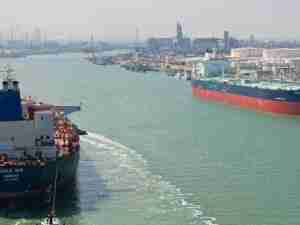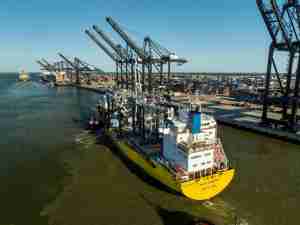The Chinese spending is part of total joint investments of 10.5 billion ringgit ($3.5 billion) expected by 2020 in the new Kuantan Industrial Park as Beijing moves to deepen its ties with the Southeast Asian nation.
China has rapidly moved to expand its diplomatic, cultural and economic influence in Southeast Asia in recent years, from funding mega-dams and casinos in the Mekong region to pushing its territorial claims in the South China Sea.
The signing comes a day after Malaysia was criticized by Human Rights Watch for what the group said was the deportation to China of six asylum seekers from the Uighur ethnic minority.
A dozens-strong Chinese delegation led by Jia Qinglin, a senior member of the Communist Party Politburo Standing Committee, was also to sign an agreement on Tuesday to set up the first major Chinese university campus on foreign soil in Malaysia.
Speaking at the ground-breaking ceremony, Prime Minister Najib Razak said Malaysia had been "ahead of the curve" in enhancing economic and diplomatic cooperation with China.
"Over the past decade, the world has come to terms with a model where China's need for resources has driven new patterns of trade and influence," he said at the ground-breaking ceremony for the industrial park in the eastern state of Pahang.
"Now it is beginning to recognise that Chinese innovation and domestic demand will prove just as potent a force in the global economy."
Chinese firm Guangxi Beibu International Port Group will partner with Malaysia's IJM Corporation Berhad in a 3 billion ringgit investment to deepen and expand Kuantan port.
Guangxi Beibu will also lead investments of 5 billion ringgit ($1.6 billion) to build the steel, aluminium and palm oil plants. Those investments would be 100 percent owned by Chinese firms, Ong Ka Ting, Najib's special envoy to China, told Reuters.
Joint investments in a "master" project to develop the industrial zone would amount to another 2.5 billion ringgit.
"The relationship with China is getting better and better," Ong said.
Growing Trade , Investment
China is Malaysia's largest export market, and accounts for a sixth of its imports. Najib said Malaysia expected more than 1 billion ringgit of Chinese foreign direct investment this year, with two-way trade expected to grow about 10 percent to $100 billion.
China's Xiamen university announced in January that it would open its first overseas campus in Malaysia. State news agency Bernama said it would initially take in 10,000 students, a third of them Chinese nationals.
Human Rights Watch condemned on Monday what it called Malaysia's "secret forced return" to China of six Uighurs with pending asylum claims. Rights groups have accused Beijing of detaining and intimidating ethnic Uighurs in the far western region of Xinjiang for speaking out on rights abuses following riots in the regional capital three years ago.
"They (China) are running these guys down, they are doing it in Southeast Asia with the support of governments like Malaysia. Are these quid pro quo arrangements?" said Phil Robertson, deputy Asia director at the group.
The prime minister's office did not respond to a request for comment on the allegations. Ong also declined to comment. (Reuters)










